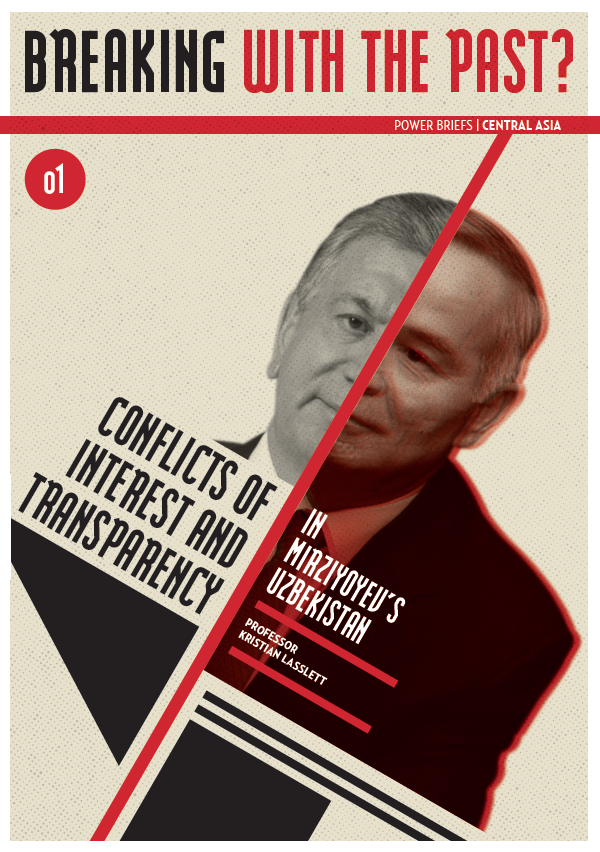New Series Reveals Uzbekistan Reforms Haunted by Bad Habits of the Past
Power Briefs | Central Asia is a new series published by the University of Ulster and the Corruption and Human Rights Initiative (CHRI).
It draws on the power of data science to scrutinise the integrity of markets and governments in Central Asia.
Issue one focuses on the Akfa-Artel business group and its founder Jahongir Artikhodjaev, Mayor of Tashkent. This case study is used in order to place a forensic lens over the reform process underway in Uzbekistan.
A Russian language summary is available here via Open Democracy.
An Uzbek language summary is available here via El-Tuz.
A Podcast introduction by the report’s author is available here.

Issue One “Breaking with the Past: Conflicts of Interest and Transparency in Mirziyoyev’s Uzbekistan”
The report’s author Professor Kristian Lasslett argues ‘the devil is always in the detail, you have to examine with a fine tooth comb the everyday transactions of government and business in order to reliably determine whether there is serious content underpinning policy statements’.
The study finds while there are laudable examples of greater openness in government and business, the bad habits of the past continue to stymy reforms.
‘We have here a major, politically exposed business grouping [Akfa-Artel group] in receipt of significant state aid overseen by the Mayor of Tashkent, which operates opaque offshore structures centred largely in the United Kingdom, administered in some instances by individuals implicated in extremely shady practices’, Professor Lasslett observes.

Image: Figure 1 in the report details opaque offshore vehicles linked to Akfa-Artel selected by government to invest in the US$1.3 billion Tashkent City property development overseen by the Mayor.
‘On a number of notable high value instances this state aid is provided without an open tender or clear selection criteria. At least we think, attempts to obtain information on government decisions proved impossible despite admirable freedom of information laws’, Professor Lasslett adds.
Issue one of Power Briefs makes a series of recommendations for strengthening the reform process in Uzbekistan, including increased public, fiscal and corporate transparency, the use of open, competitive tendering processes, the cessation of opaque awards of state aid, greater public consultation, and more prescriptive procedure for managing conflicts of interest.
FULL REPORT
BONUS PODCAST
Professor Kristian Lasslett discusses the reports key findings.
Contact
Professor Kristian Lasslett
E: [email protected]
T: +44 28 9036 6248